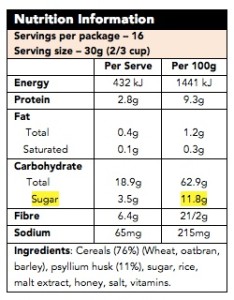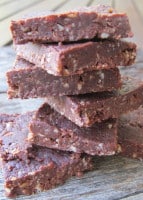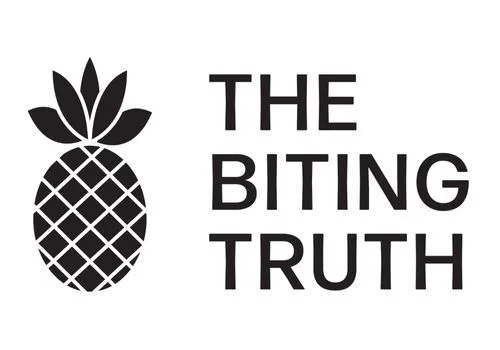It seems like soon enough, memories of choc-tops at the movies will be regaled to children like tales of our grandparents’ 10-cent drive-in tickets. Who uses white table sugar anymore anyway? Over the past couple of months we have noticed a frenzy surrounding this so-called ‘toxic’ substance. Before we peer inside this Pandora’s box, let’s jump right back to the basics…
Sugar. What is it?
Sugars are the basic building blocks that make up carbohydrates. There are three main sugars that are naturally found in foods: fructose (the sugar found in fruit), lactose (the sugar found in milk) and glucose (the sugar found in carbohydrate rich foods). Given that glucose is our bodies’ predominate source of fuel, it is utter nonsense to suggest that it may be ‘toxic’, when really we need it to survive! There is a place for these natural sugars in our diet, however like most things, it all comes down to quality and quantity.
Hidden Sugars
‘Added sugars’ are sugars or syrups that are added to foods and beverages whilst they are being processed and prepared. These are the sugars that we want to focus on reducing in our diets, as most often they bear little nutritional benefits and are found in foods with high kJ contents.
The problem today is, that with such a variety of foods available to us, often dressed up nicely and pretending to be something they’re not, it can be hard to choose products that aren’t packed with added sugars!
The trick is to learn how to read the nutrition information panel on the product. When 
Even in foods that contain natural sugars, you should still check the ingredients list to make sure sugar isn’t appearing in the first three ingredients. If it does, that means that this food contains added sugars as well! In this case, we encourage you to choose an alternative product. Keep in mind that food manufacturers use alternative names for ‘sugar’ such as: Malt syrup, Dextrose, Maltose, Sucrose, Molasses, Brown sugar, Caster sugar, Maple syrup, Raw sugar, Golden syrup.
Is it necessary to eliminate ALL sugar from our diet? What are the claims out there for eliminating sugar and are these claims true?
We hear claims all the time like “I’ve cut out sugar and I’ve lost weight”. But is it really that simple? What the ‘anti-sugar lobbyists’ fail to recognise is that when a person cuts out sugar from their diet, this often means that person is abstaining from foods like chocolate, muffins, ice-cream, soft drinks and desserts. Whilst these foods are indeed high in added sugars, they are also high in saturated fat and usually very high in energy. Avoiding that triple-whammy of calories, fat and sugar will therefore often result in an overall reduction in energy intake, which will likely lead to weight loss. This is evidence that yes while sugar is a problem, it is only PART of the problem.
The Verdict is simple:
- Sugars that are found in fruits, dairy products and vegetables generally come from natural sources and SHOULD be included as part of an overall healthy diet.
- Sugars that are removed from their original source and added to other foods should generally be LIMITED.

The Biting Truth’s advice
We don’t believe sugar ALONE is to blame for the growing issue of overweight and obesity in Australia. We do however recognise that it is PART of the problem. Although we recommend trying not to be too extreme with these things, there are some ways that we can easily reduce our intake of added sugars without being too over the top.
We suggest:
- Choose your cereal wisely. Most of the cereals on the market are packed with dried fruit, which concentrates sugar. Choose fruit free wholegrain cereals or oats.
- Check the panel when it comes to yoghurt. We recommend opting for plain Greek or natural yoghurt and adding fruit yourself.
- Go easy on the sauces. It’s easy to get carried away with adding sauces to your dish however these often contain a few teaspoons of sugar per serve. Why not add herbs and spices to your meal to boost flavour without the added nasties?
- Limit fruit juice where possible. Whole fruit is far more nutritious as whilst you do get some sugars that are found naturally in the fruit you also get a FIBRE which you won’t get if you have a juice
- Enjoy food! And try and not demonise any one nutrient, as it is the whole diet that needs to be looked at.

